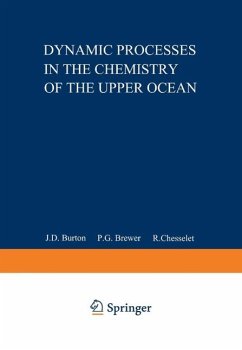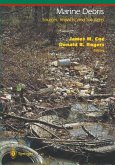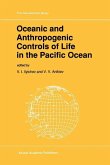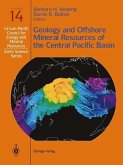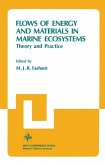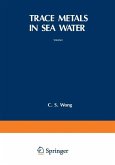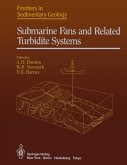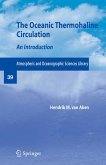The. Advanced Research Inst i tute (ARI) on Dynamic Processes in the Chemistry of the Upper OCean had its origins in discussions by the NATO Special Programme Panel on Marine Sciences during 1978 when a wide range of topics for future ARIs was being considered. What was then envisaged was a workshop on chemical aspects of the oceanic mixed layer, at which consider ation would be given to the inputs, cycling and removal of material, and the problems involved in the quantitative assessment of fluxes. It was realised that any attempt to model chemical processes would need the active collaboration of workers from other fields, especially physical oceano graphers concerned with air-sea interaction and turbulence, and biological oceano~raphers with expertise in primary productivity and the cycling of particulate and dissolved organic material. As plans for the ARI developed further a somewhat different emphasis emerged, focused on the question as to how chemists should set about observing an environment as variable and dynamic as the upper ocean and selecting the appropriate scales for the framework of measurements to study a particular process, especially in the light of current knowledge of physical processes of transport and mixing. It was plain that the capabil ity of physical oceanographic methods to resolve differences on small spatial and temporal scales is considerably ahead of the capabilities of biologists and chemists who rely upon discrete sampling and complex lab oratory manipulations in order to obtain most of their data.
Dieser Download kann aus rechtlichen Gründen nur mit Rechnungsadresse in A, B, BG, CY, CZ, D, DK, EW, E, FIN, F, GR, HR, H, IRL, I, LT, L, LR, M, NL, PL, P, R, S, SLO, SK ausgeliefert werden.

